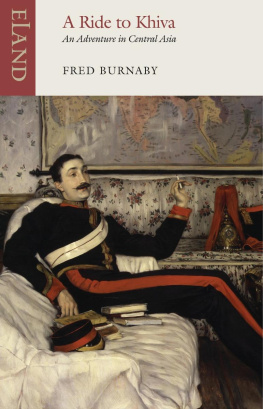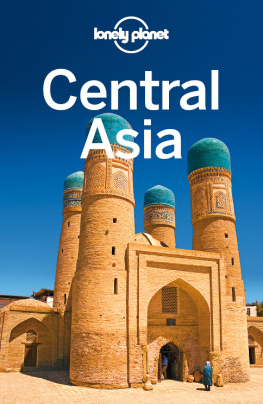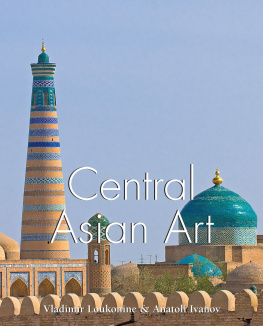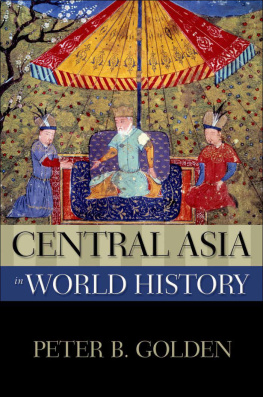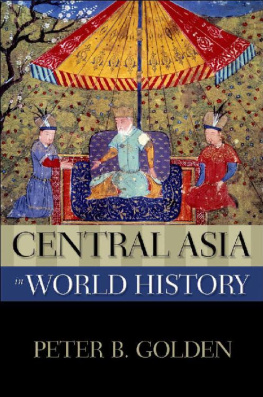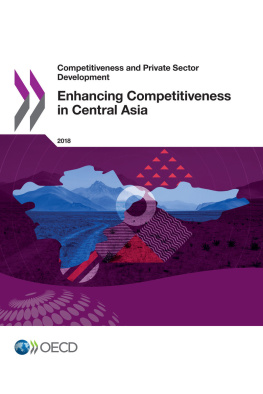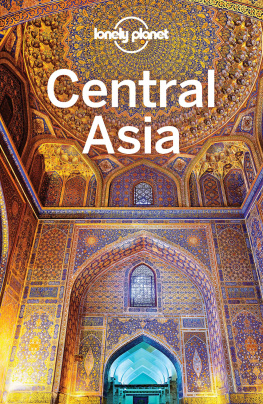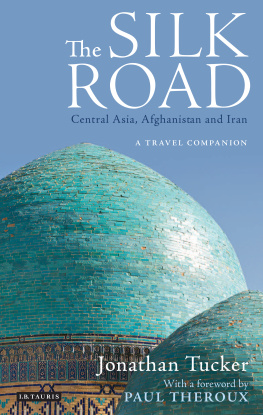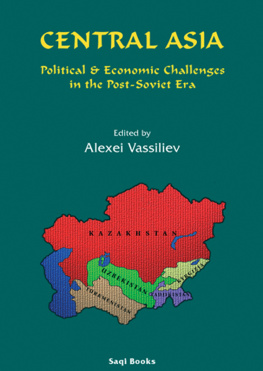Burnaby Fred - A ride to Khiva: an adventure in Central Asia
Here you can read online Burnaby Fred - A ride to Khiva: an adventure in Central Asia full text of the book (entire story) in english for free. Download pdf and epub, get meaning, cover and reviews about this ebook. City: Asia;Central;Central Asia;Khiva (Uzbekistan);Russia;Uzbekistan;Khiva, year: 2017, publisher: Eland Publishing Ltd, genre: Art. Description of the work, (preface) as well as reviews are available. Best literature library LitArk.com created for fans of good reading and offers a wide selection of genres:
Romance novel
Science fiction
Adventure
Detective
Science
History
Home and family
Prose
Art
Politics
Computer
Non-fiction
Religion
Business
Children
Humor
Choose a favorite category and find really read worthwhile books. Enjoy immersion in the world of imagination, feel the emotions of the characters or learn something new for yourself, make an fascinating discovery.
- Book:A ride to Khiva: an adventure in Central Asia
- Author:
- Publisher:Eland Publishing Ltd
- Genre:
- Year:2017
- City:Asia;Central;Central Asia;Khiva (Uzbekistan);Russia;Uzbekistan;Khiva
- Rating:3 / 5
- Favourites:Add to favourites
- Your mark:
- 60
- 1
- 2
- 3
- 4
- 5
A ride to Khiva: an adventure in Central Asia: summary, description and annotation
We offer to read an annotation, description, summary or preface (depends on what the author of the book "A ride to Khiva: an adventure in Central Asia" wrote himself). If you haven't found the necessary information about the book — write in the comments, we will try to find it.
A ride to Khiva: an adventure in Central Asia — read online for free the complete book (whole text) full work
Below is the text of the book, divided by pages. System saving the place of the last page read, allows you to conveniently read the book "A ride to Khiva: an adventure in Central Asia" online for free, without having to search again every time where you left off. Put a bookmark, and you can go to the page where you finished reading at any time.
Font size:
Interval:
Bookmark:
A LOW room, with but little furniture, and that of the simplest kind; a few telegraphic instruments scattered about here and there in out-of-the-way corners, and mixed up promiscuously with rifles and wooden boxes, some filled with cartridges, others containing provisions for a journey; two or three bottles, labelled Quinine, on a rickety wooden table; several men of various nationalities all talking at the same time, and a Babel of different languages;such was the scene around the writer of this work, who was leaning against the window-sill, and glancing from time to time at an old number of an English newspaper.
The host was a German gentleman, now several thousand miles from the Fatherland, which he had been induced to leave by an offer of the post of superintendent and general manager on a long and important line of recently-constructed telegraph. A graceful girl, with large dark eyes and pearl-white teeth, but whose olive complexion and Oriental dress showed that she was in no way akin to the fairer beauties of Europe, was engaged in handing round small cups of coffee to the most excited talkers of the party, an Italian, Arab, and Englishman, the former gesticulating wildly in an endeavour to interpret between his two companions, who were evidently not at all in accord about the subject of conversation. A bright sun, its rays flashing down on a broad stream, nearly the colour of lapis-lazuli, which flowed hard by the dwelling, had raised the temperature of the room to an almost unbearable heat. It was the month of February. In England people were shivering beside their fires or walking in slush or snow; but I was at Khartoum, having just returned from a visit to Colonel Gordon, Sir Samuel Bakers successor, on the White Nile.
It may seem strange thus to commence the narrative of a journey to Central Asia in Central Africa, and yet, had it not been for a remark made by one of the men in the low square room to which I have just referred, in all probability I should never have gone to Khiva. The conversation had lulled, the Arab and Englishman having, by means of the Italian, settled the knotty point as to whether the son of Albion, an officer late in the Khedives service, was to receive the salary due to him in its entirety or not; the Mohammedan being of opinion that the Christian ought to be paid the amount subject to a deduction, the native Egyptian officials having always to submit to this system of taxation. However, my English friend did not see it in this light: he had agreed to serve for a certain sumthat sum he must receiveand if the Arab did not pay, why, he would complain to the Khedive. This last remark having been at length translated to the official, the latter succumbed. My compatriot, the question being settled to his satisfaction, came and looked out of the window by my side.
It was indeed a picturesque scene. The Blue Nile, here nearly half a mile from shore to shore, lay smooth and unrippled like a sea of glass almost at our feet. On its vast surface were barges and native boats innumerable, whilst many nuggersthe huge sailing barques of the Arabs, and much used by them in former years when engaged in the slave-tradewere anchored here and there. Gangs of workmen, black as ebony, and stripped to the waist, their well-developed muscles standing out like knotted cords, were busily engaged unloading a freight of ivory bound for Cairo. An enormous saquieh, or water-wheel, for irrigation purposes, was slowly revolving, put in motion by the united exertions of a bullock and a donkey. The wild yells of a negro lad, whose duty it was to goad the animals should they ever flag, mingled strangely with the creaking sounds of the ponderous woodwork.
I wonder where we shall all be this time next year, suddenly remarked my companion. God knows, was my answer; but I do not think I shall try the White Nile again; if I come to Africa another time I shall select a new line of country. At that moment my eye fell upon a paragraph in the paper. It was to the effect that the Government at St. Petersburg had given an order that no foreigner was to be allowed to travel in Russian Asia, and that an Englishman who had recently attempted a journey in that direction had been turned back by the authorities. I have, unfortunately for my own interests, from my earliest childhood had what my old nurse used to call a most contradictorious spirit, and it suddenly occurred to me, Why not go to Central Asia? Well, I shall try it, was my remark. What, Timbuctoo? said my friend. No, Central Asia; and I showed him the paragraph. You will never get there; they will stop you. They can if they like, but I dont think they will. And this trifling incident was the first thing which put the idea into my head of again attempting to reach Khiva.
I had intended to go there some few years ago, when the Russians were about to invade the country. I had even started on my journey, meaning to try and find a way into Khiva, vi Persia and Merve, and, if possible, be with the Khivans at the time of the Russian attack. But this project was never realised. A typhoid fever, caught as I was rapidly travelling through Italy, laid me for four months on a bed of sickness. My leave thus was spent in a very different manner from that originally intended, and I had, as it is commonly termed, a much closer shave for my life than I believe would ever have been the case even if I had been taken prisoner by the most fanatical Turkomans in Central Asia. But the campaign was over. There would be no fighting to see. Our statesmen had learned how to appreciate a Russians promises at their true value. Samarcand had been annexed to the Tzars dominions, the Black Sea Treaty had been repudiated, and Russian troops were quartered in Khivan territory.
According to some politicians Khiva was a long way from India, and it really did not signify to England whether Russia annexed it or not. Again, it was urged by others, if Russia does eventually reach our Indian frontier so much the better for England. We shall have a civilized nation as a neighbour instead of the barbarous Afghans. A third argument brought forward to defend the action of the Liberal Government was, that India did not signify so much to us after all, that she was a very expensive possession, and one which we should very likely have taken from us, but one certainly not worth fighting for. This was the opinion of some men who were high in office, and who thus lightly valued one of the brightest jewels in the British crown. The majority of our rulers did not trouble their heads much about the matter. India will last my time was the remark; Russia is still a long way off; and our grandchildren must look after themselves. Sufficient for the day is the evil thereof; and after me the Deluge. Thus the question was allowed to drop, and the minds of our legislators were speedily engrossed in studying the important question as to which would be the better course to pursueto allow Englishmen to go into public-houses after eleven oclock at night, or to send them thirsty and supperless to bed.
The following autumn the Carlist War was going on, so I went to Spain. After a time my thoughts were no longer occupied with the state of affairs in Central Asia. It was only when my friend, in reply to my observation, had observed, You will never get there; they will stop you, that it occurred to me to ask what possible reason the Russian Government could have for pursuing a line of policy which, easily understood when adopted by a barbarous nation like China, was a singular one for even a semi-civilized power. It was the more remarkable, as, from the days of Peter the Great, the regenerator of Russia, his successors have invariably encouraged the inhabitants of Western Europe to visit and freely circulate throughout the Imperial dominions. If it were not for the German element, which is so largely diffused throughout the governing classes, Russia would never have arrived at even her present state of advancement. Of all the Tzars of Muscovy during the last 200 years the present Emperor is perhaps the sovereign most keenly alive to the advantage of raising the standard of civilization throughout his dominions, by admitting foreigners, particularly Germans, to every office in the empire. The repressive order to which I have alluded, thus absolutely cutting off Asiatic Russia from almost all contact with the more civilized inhabitants of Europe, was in striking contrast to the line of conduct which had previously characterized his reign.
Font size:
Interval:
Bookmark:
Similar books «A ride to Khiva: an adventure in Central Asia»
Look at similar books to A ride to Khiva: an adventure in Central Asia. We have selected literature similar in name and meaning in the hope of providing readers with more options to find new, interesting, not yet read works.
Discussion, reviews of the book A ride to Khiva: an adventure in Central Asia and just readers' own opinions. Leave your comments, write what you think about the work, its meaning or the main characters. Specify what exactly you liked and what you didn't like, and why you think so.

